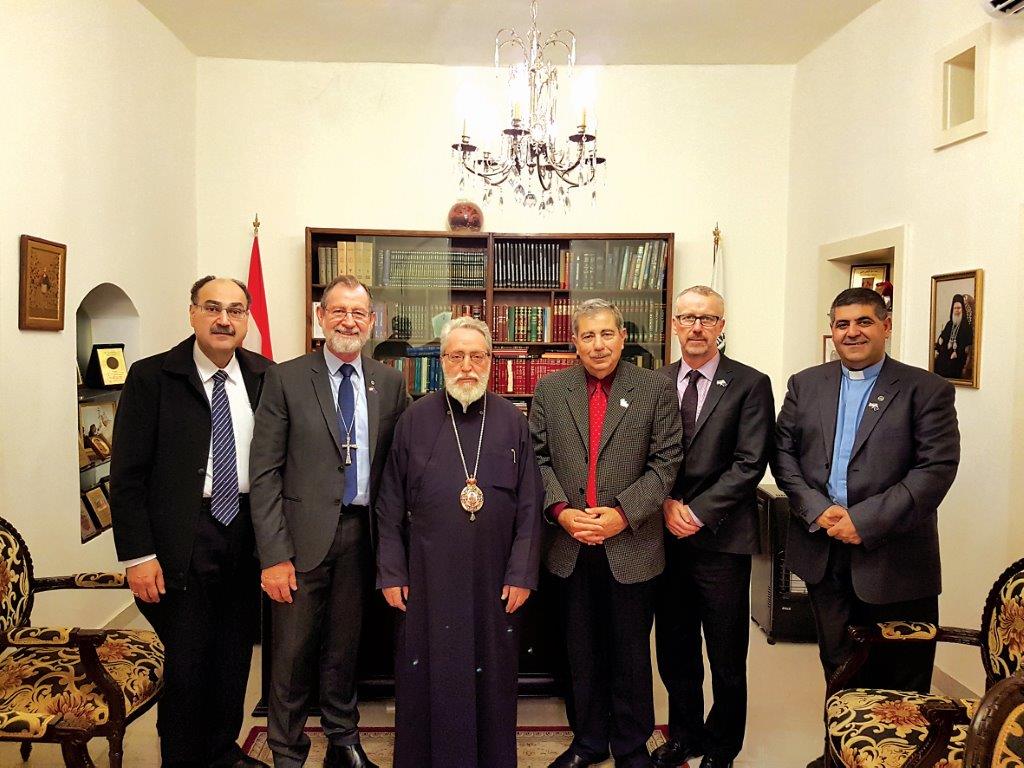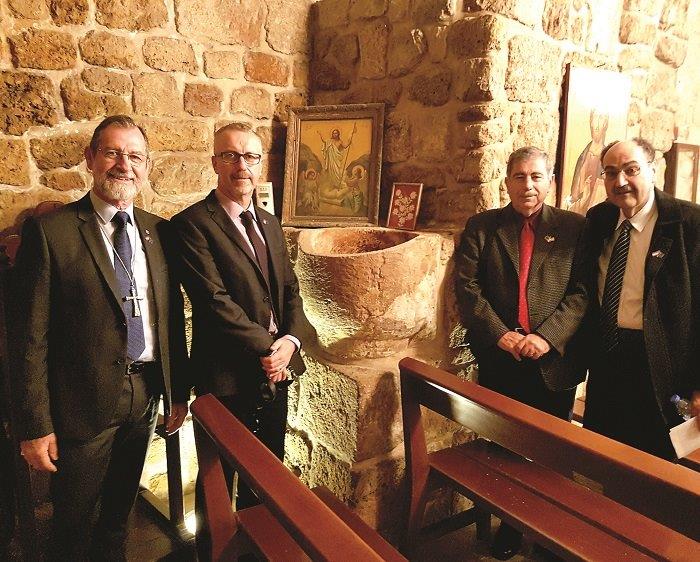A delegation of Uniting Church leaders travelled to Lebanon in January with the aim of building relationships with churches in the region.
The delegation included Stuart McMillan, president of the Uniting Church in Australia, Rob Floyd, national director of UnitingWorld, and three Uniting Church ministers from the Middle East, including Rev Dr Emanuel Audisho, multicultural ministry co-ordinator for the Uniting Church WA.
The group met with the leaders of the Union of Armenian Evangelical Churches in the Near East, the National Evangelical Synod of Syria and Lebanon and the National Evangelical Church of Beirut. They also visited a range of historical sites, including one of the ancient jars from the biblical story of the Wedding at Cana (John 2) and one of the earliest memorial sites of the Armenian Genocide in Antelias.
While in Lebanon, the group also spent some time at Fondation le Grain de Ble, a program for local refugee children which provides camps, clubs, sport, literature, games and entertainment for refugee children in Lebanon, with an aim to share God’s love.
Lebanon currently hosts 1.1million refugees, making them the third largest host country for refugees in the world. Most of these refugees come from Syria, with 70% living below the poverty line.
While most of the delegation stayed for a week in Lebanon, Emanuel stayed on an extra week to visit refugee families in the area.
“The situation for the refugees is very sad; their struggle and their life,” he said. “One of the families, they cry, they say they haven’t the money to pay the rent.
“They wait and wait because they’ve applied as refugees to go to Canada, Australia or America. They wait more than two years and nothing happens.
“My heart is broken indeed.”

Greek Orthodox Archdiocese – South Lebanon, His Eminence the
Most Rev Metropolitan Elias Kfoury (third from left).
L-r: Rev Krikor Youmshajekian, Stuart McMillan, Rev Emanuel
Audisho, Rob Floyd and Rev Gaby Kobrossi.
Emanuel said he was able to read the Bible and pray with the families and that he felt it gave them some comfort.
“We as western countries need to look with empathy to those families and kids. As a Christian, the Bible says welcome the strangers and find the shelter to those who have no shelter. This is what the Bible commands us.
“We need to love our neighbours. We need to support those people who are in need, who are our brothers and sisters in Christ and humanity.”
Stuart McMillan, president of the Uniting Church in Australia, has written about his experience in Lebabon.
“The impact of our time in Lebanon upon us has been profound and we are still processing it,” Stuart wrote. “Certainly the Christian community’s sense of hope, of determination to stay, to rebuild and to support those displaced to stay, I would describe as God’s mission for them to be salt and light; the presence of Christ in the Middle East.
“To borrow the words of Paul and Timothy from 2 Corinthians 4, they are not crushed, although they may be hard pressed. They are not in despair, although at times perplexed. Yes they are persecuted, but not abandoned by God or the global Christian community. And they may have been struck down, but they are not destroyed.”
As a result of the trip, the Uniting Church in Australia, through UnitingWorld is currently working on new potential partnerships with churches in Lebanon.
“The main aim of our work with the church will be to care for the needs of refugees, mostly Syrian, to enable those churches that have schools to provide education for children. We’ll include both refugees and those in Lebanon or Syria whose families have been disadvantaged or impacted by the crisis, also supporting the church as they provide food and shelter.” Rob Floyd, national director of UnitingWorld, said.
“The refugees and children that would benefit will be from a cross-section of the community, both Muslim and Christian, based on need.”
UnitingWorld is running a crowdfunding campaign to get the project off the ground and are asking for support. Visit the UnitingWorld website for more information at http://www.unitingworld.org.au.
You can read Stuart’s full reflection at https://assembly.uca.org.au/news/item/2561-a-theology-of-impact.
Top image: The Uniting Church delegation visited the site of the biblical jar in Lebanon.
Heather Dowling
